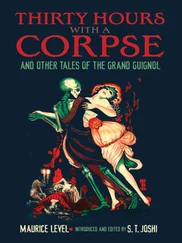Генри Джеймс - Lady Barbarina, The Siege of London, An International Episode, and Other Tales
Здесь есть возможность читать онлайн «Генри Джеймс - Lady Barbarina, The Siege of London, An International Episode, and Other Tales» — ознакомительный отрывок электронной книги совершенно бесплатно, а после прочтения отрывка купить полную версию. В некоторых случаях можно слушать аудио, скачать через торрент в формате fb2 и присутствует краткое содержание. Жанр: foreign_prose, literature_19, foreign_antique, на английском языке. Описание произведения, (предисловие) а так же отзывы посетителей доступны на портале библиотеки ЛибКат.
- Название:Lady Barbarina, The Siege of London, An International Episode, and Other Tales
- Автор:
- Жанр:
- Год:неизвестен
- ISBN:нет данных
- Рейтинг книги:4 / 5. Голосов: 1
-
Избранное:Добавить в избранное
- Отзывы:
-
Ваша оценка:
- 80
- 1
- 2
- 3
- 4
- 5
Lady Barbarina, The Siege of London, An International Episode, and Other Tales: краткое содержание, описание и аннотация
Предлагаем к чтению аннотацию, описание, краткое содержание или предисловие (зависит от того, что написал сам автор книги «Lady Barbarina, The Siege of London, An International Episode, and Other Tales»). Если вы не нашли необходимую информацию о книге — напишите в комментариях, мы постараемся отыскать её.
Lady Barbarina, The Siege of London, An International Episode, and Other Tales — читать онлайн ознакомительный отрывок
Ниже представлен текст книги, разбитый по страницам. Система сохранения места последней прочитанной страницы, позволяет с удобством читать онлайн бесплатно книгу «Lady Barbarina, The Siege of London, An International Episode, and Other Tales», без необходимости каждый раз заново искать на чём Вы остановились. Поставьте закладку, и сможете в любой момент перейти на страницу, на которой закончили чтение.
Интервал:
Закладка:
Mrs. Freer recognised its importance to the degree of raising her glass to look at Lord Canterville. “How do you know it’s he?” she asked with that implement still up.
“I heard him say something the night I went to the House of Lords. It was very few words, but I remember him. A man near me mentioned who he was.”
“He’s not so handsome as you,” said Mrs. Freer, dropping her glass.
“Ah, you’re too difficult!” her husband murmured. “What a pity the girl isn’t with him,” he went on. “We might see something.”
It appeared in a moment, however, that the girl was with him. The nobleman designated had ridden slowly forward from the start, then just opposite our friends had pulled up to look back as if waiting for some one. At the same moment a gentleman in the Walk engaged his attention, so that he advanced to the barrier which protects the pedestrians and halted there, bending a little from his saddle and talking with his friend, who leaned against the rail. Lord Canterville was indeed perfect, as his American admirer had said. Upwards of sixty and of great stature and great presence, he was a thoroughly splendid apparition. In capital preservation he had the freshness of middle life—he would have been young indeed to the eye if his large harmonious spread hadn’t spoken of the lapse of years. He was clad from head to foot in garments of a radiant grey, and his fine florid countenance was surmounted with a white hat of which the majestic curves were a triumph of good form. Over his mighty chest disposed itself a beard of the richest growth and of a colour, in spite of a few streaks vaguely grizzled, to which the coat of his admirable horse appeared to be a perfect match. It left no opportunity in his uppermost button-hole for the customary orchid; but this was of comparatively little consequence, since the vegetation of the beard itself was tropical. Astride his great steed, with his big fist, gloved in pearl-grey, on his swelling thigh, his face lighted up with good-humoured indifference and all his magnificent surface reflecting the mild sunshine, he was, strikingly, a founded and builded figure, such as could only represent to the public gaze some Institution, some Exhibition or some Industry, in a word some unquenchable Interest. People quite lingered to look up at him as they passed. His halt was brief, however, for he was almost immediately joined by two handsome girls, who were as well turned-out, in Dexter Freer’s phrase, as himself. They had been detained a moment at the entrance to the Row and now advanced side by side, their groom close behind them. One was noticeably taller and older than the other, and it was plain at a glance that they were sisters. Between them, with their charming shoulders, their contracted waists and their skirts that hung without a wrinkle, like plates of zinc, they represented in a singularly complete form the pretty English girl in the position in which she is prettiest.
“Of course they’re his daughters,” said Dexter Freer as these young ladies rode away with Lord Canterville; “and in that case one of them must be Jackson Lemon’s sweetheart. Probably the bigger; they said it was the eldest. She’s evidently a fine creature.”
“She’d hate it over there,” Mrs. Freer returned for all answer to this cluster of inductions.
“You know I don’t admit that. But granting she should, it would do her good to have to accommodate herself.”
“She wouldn’t accommodate herself.”
“She looks so confoundedly fortunate, perched up on that saddle,” he went on without heed of his wife’s speech.
“Aren’t they supposed to be very poor?”
“Yes, they look it!” And his eyes followed the eminent trio while, with the groom, as eminent in his way as any of them, they started on a canter.
The air was full of sound, was low and economised; and when, near our friends, it became articulate the words were simple and few. “It’s as good as the circus, isn’t it, Mrs. Freer?” These words correspond to that description, but they pierced the dense medium more effectually than any our friends had lately heard. They were uttered by a young man who had stopped short in the path, absorbed by the sight of his compatriots. He was short and stout, he had a round kind face and short stiff-looking hair, which was reproduced in a small bristling beard. He wore a double-breasted walking-coat, which was not, however, buttoned, and on the summit of his round head was perched a hat of exceeding smallness and of the so-called “pot” category. It evidently fitted him, but a hatter himself wouldn’t have known why. His hands were encased in new gloves of a dark-brown colour, and these masquerading members hung consciously, quite ruefully, at his sides. He sported neither umbrella nor stick. He offered one of his stuffed gloves almost with eagerness to Mrs. Freer, blushing a little as he measured his precipitation.
“Oh Doctor Feeder!”—she smiled at him. Then she repeated to her husband, “Doctor Feeder, my dear!” and her husband said, “Oh Doctor, how d’ye do?” I have spoken of the composition of the young man’s appearance, but the items were not perceived by these two. They saw but one thing, his delightful face, which was both simple and clever and, as if this weren’t enough, showed a really tasteless overheaping of the cardinal virtues. They had lately made the voyage from New York in his company, and he was clearly a person who would shine at sea with an almost intolerable blandness. After he had stood in front of them a moment a chair beside Mrs. Freer became vacant; on which he took possession of it and sat there telling her what he thought of the Park and how he liked London. As she knew every one she had known many of his people at home, and while she listened to him she remembered how large their contribution had been to the moral worth of Cincinnati. Mrs. Freer’s social horizon included even that city; she had had occasion to exercise an amused recognition of several families from Ohio and was acquainted with the position of the Feeders there. This family, very numerous, was interwoven into an enormous cousinship. She stood off herself from any Western promiscuity, but she could have told you whom Doctor Feeder’s great-grandfather had married. Every one indeed had heard of the good deeds of the descendants of this worthy, who were generally physicians, excellent ones, and whose name expressed not inaptly their numerous acts of charity. Sidney Feeder, who had several cousins of this name established in the same line at Cincinnati, had transferred himself and his ambition to New York, where his practice had at the end of three years begun to grow. He had studied his profession at Vienna and was saturated with German science; had he only worn spectacles he might indeed perfectly, while he watched the performers in Rotten Row as if their proceedings were a successful demonstration, have passed for some famously “materialistic” young German. He had come over to London to attend a medical congress which met this year in the British capital, for his interest in the healing art was by no means limited to the cure of his patients. It embraced every form of experiment, and the expression of his honest eyes would almost have reconciled you to vivisection. This was his first time of looking into the Park; for social experiments he had little leisure. Being aware, however, that it was a very typical and, as might be, symptomatic sight, he had conscientiously reserved an afternoon and dressed himself carefully for the occasion. “It’s quite a brilliant show,” he said to Mrs. Freer; “it makes me wish I had a mount.” Little as he resembled Lord Canterville he rode, as he would have gaily said, first-rate.
“Wait till Jackson Lemon passes again and you can stop him and make him let you take a turn.” This was the jocular suggestion of Dexter Freer.
Читать дальшеИнтервал:
Закладка:
Похожие книги на «Lady Barbarina, The Siege of London, An International Episode, and Other Tales»
Представляем Вашему вниманию похожие книги на «Lady Barbarina, The Siege of London, An International Episode, and Other Tales» списком для выбора. Мы отобрали схожую по названию и смыслу литературу в надежде предоставить читателям больше вариантов отыскать новые, интересные, ещё непрочитанные произведения.
Обсуждение, отзывы о книге «Lady Barbarina, The Siege of London, An International Episode, and Other Tales» и просто собственные мнения читателей. Оставьте ваши комментарии, напишите, что Вы думаете о произведении, его смысле или главных героях. Укажите что конкретно понравилось, а что нет, и почему Вы так считаете.












